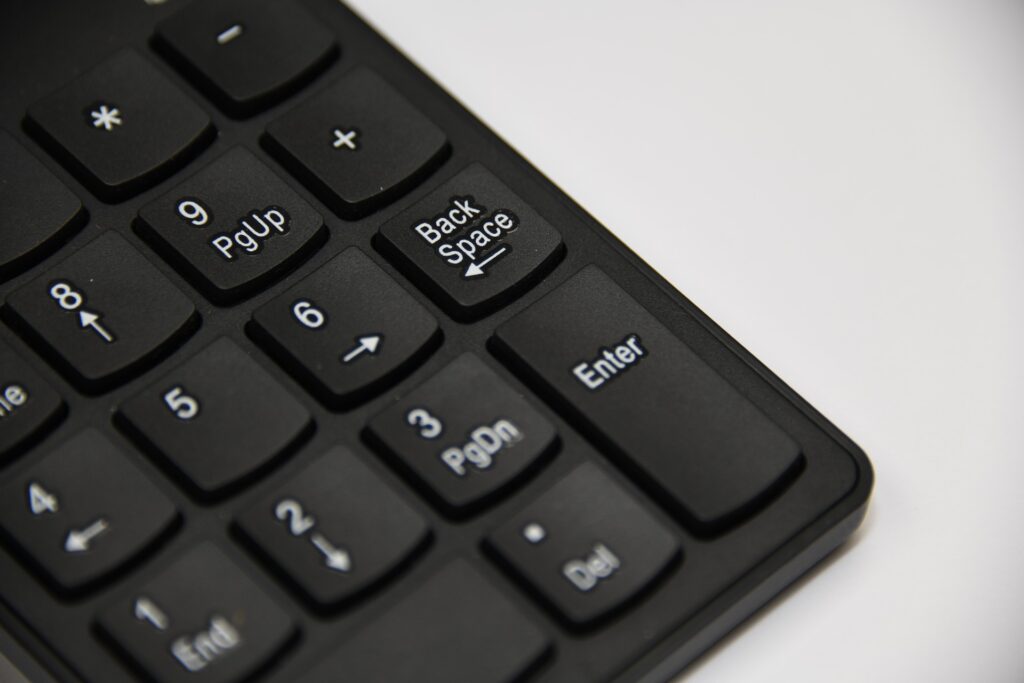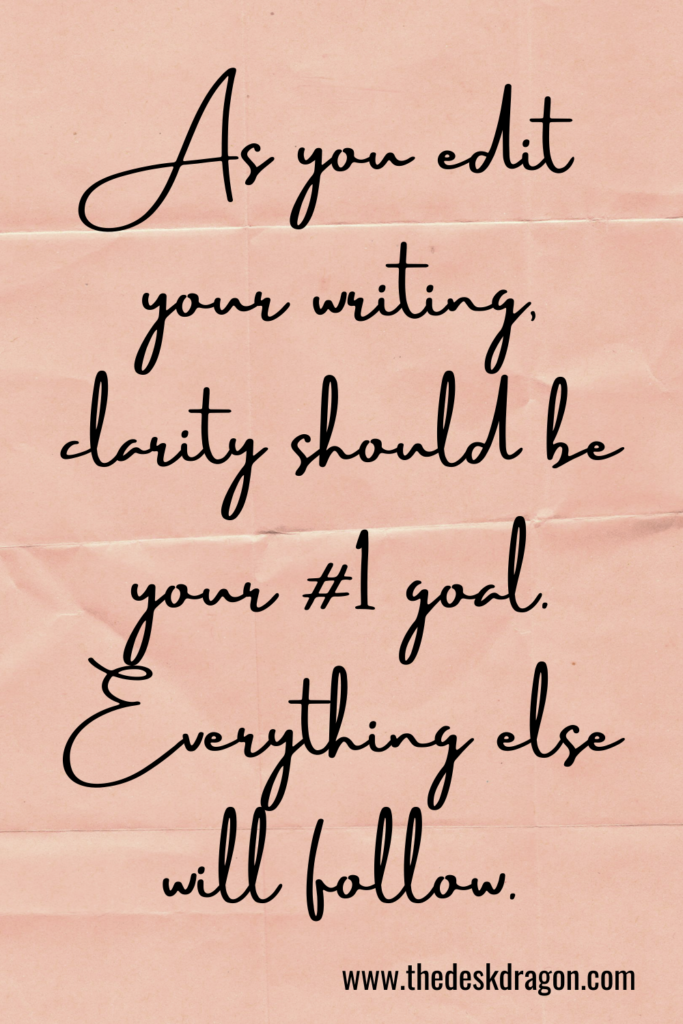How To Edit Your Writing Effectively
The real magic of writing is in the editing. Flawless grammar and beautiful word choice don’t just flow onto the page with perfect ease; they’re hard work, and most of their substance is added after the first draft has been completed. So if you want to reach your fullest potential as a writer, you must learn to edit your writing well. (Or hire someone else to do that for you!)
But you probably know that already. If, however, you struggle to follow through — if you aren’t sure where to start or how to ensure you’ve edited your writing well — this post is for you.
Let’s take a look at 8 questions to ask yourself as you edit your writing for a well-polished final draft.
1. Have I said this as clearly as possible?

As you edit your writing, clarity should be your #1 goal. If your reader is confused, your message won’t have the impact you want it to. Worse, vague or misleading word choice can communicate a completely different message than the one you’re trying to convey.
2. Have I made transitions in my head but not in the text?
This is such an easy mistake to make, but it takes conscious effort to recognize that you’ve done it. As the writer, you know your exact intended meaning. You know what connections you’ve made from one thought to the next. But your reader isn’t privy to your thought process. They only have the words you’ve put on the page for them.
Read what you’ve written from the perspective of someone who has no outside understanding of the topic. Have you:
- Skipped over steps they won’t know to fill in?
- Used terms they will find unfamiliar?
- Changed topics in the middle of a paragraph without explaining to them why you’re doing so?
Take the reader by the hand, and guide them directly from each thought to the next.
3. How does it sound when read out loud?
If you struggle to notice grammatical errors or awkward phrasing, reading your writing out loud is a great way to find them. Our ears are attuned to what language should sound like.
Read what you’ve written out loud, and notice which phrases trip you up or make you cringe. Then see what you can do to make them sound better.
4. Do I repeat any words within a single sentence or paragraph?

Sometimes repetition is necessary for clarity’s sake. But often, repeated words, phrases, and ideas are signs that you need to edit your writing.
If you find yourself using the same word or phrase multiple times, ask yourself why. Do you really need the repetition? If not, can you substitute a synonym or change up the word order to avoid repeating yourself? Can you remove some of the repeated words or phrases entirely without sacrificing clarity?
5. Can I remove anything without changing the meaning?
A huge part of editing is condensing and simplifying. To make your writing stronger, comb each sentence for words you can remove without changing the meaning. Also look out for entire sentences that you can remove. And multiple sentences that can be condensed into a single thought using fewer words.
6. Does anything stick out like it doesn’t belong?
Take notice of any words, phrases, or even whole paragraphs that feel different from the rest. Perhaps the tone is different, or you’ve used imagery that’s wildly unrelated to your topic. Or maybe you can’t find a good transition into and out of that particular thought.
This is tough, because sometimes a sentence or phrase you love simply doesn’t fit with the rest of the piece. But if it doesn’t belong, it doesn’t belong. Write it down somewhere, and use it in a different piece.
7. Can I use more vivid words?

If your writing feels flat and boring, try using words that paint more distinct pictures. Use more specific verbs and nouns, and don’t settle for the bare minimum of the meaning you’re trying to evoke: make it unmistakable.
But, a caveat: don’t go overboard with the colors and imagery. Again, aim for clarity and simplicity first, because overly fancy wording is just as much of a turnoff as boring word choices.
8. Which parts sound the best? Why?
As you edit your writing, make note of the parts that sound especially good. Do any sentences make you pause in a positive way? Which parts are you most proud of? Which word choices create the strongest images in your head?
Then try to emulate those parts in the whole piece. What makes them sound so good? Why do you feel proud of them? How can you adopt similar approaches in your other sentences?
This practice will not only improve your current piece, but will also help you improve your overall writing style and voice.
Edit your writing for clarity, not perfection.

As with any other skill, the more you practice editing your writing, the better you’ll get at it. And, as with any other creative endeavor, insisting on perfection will hold you back from getting the amount of practice you need. There comes a point when you have to decide that you’ve edited that particular piece enough and you need to let it go and move on to the next.
When in doubt, let clarity be your main target. As long as your message is clear, everything else will follow.

